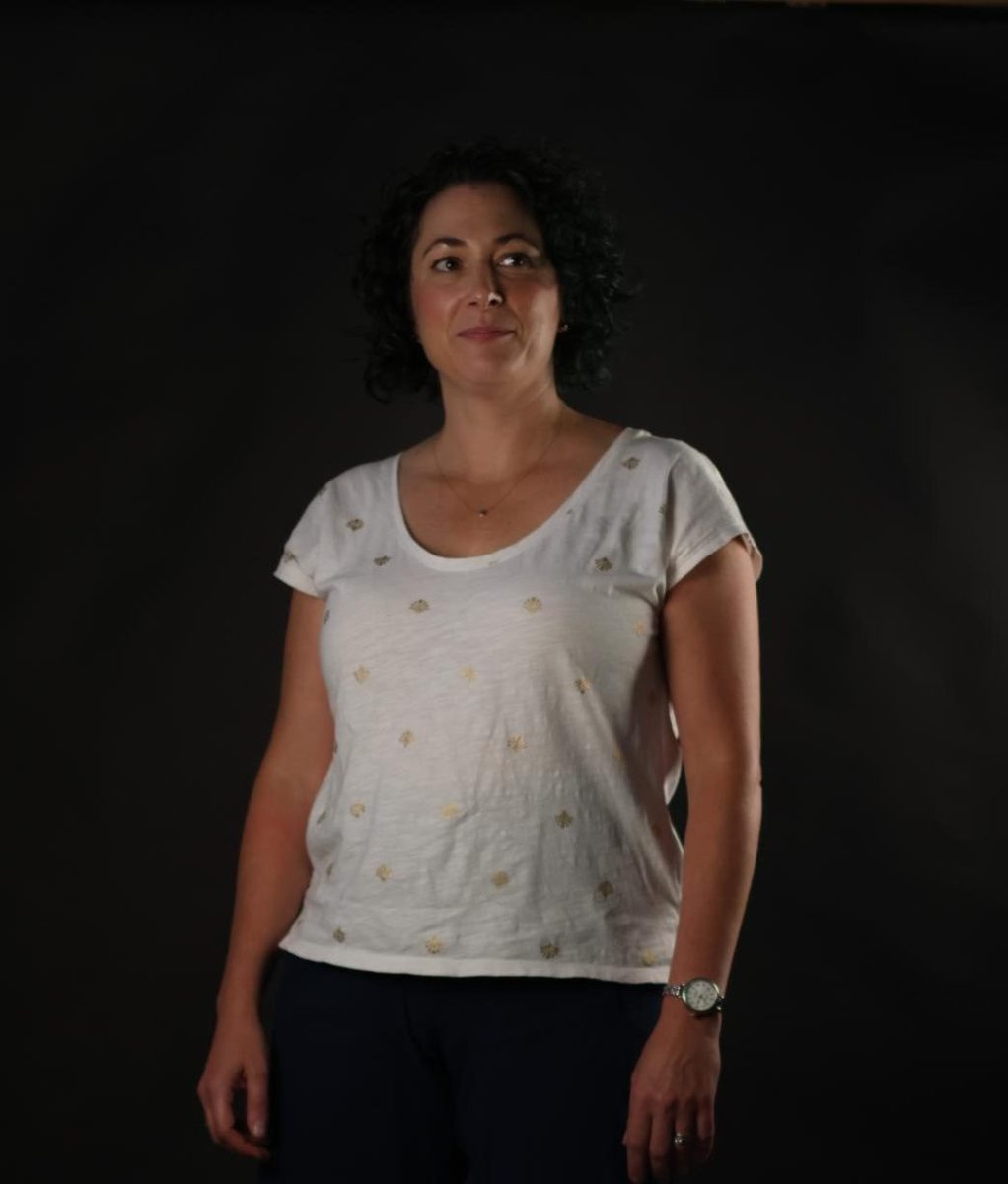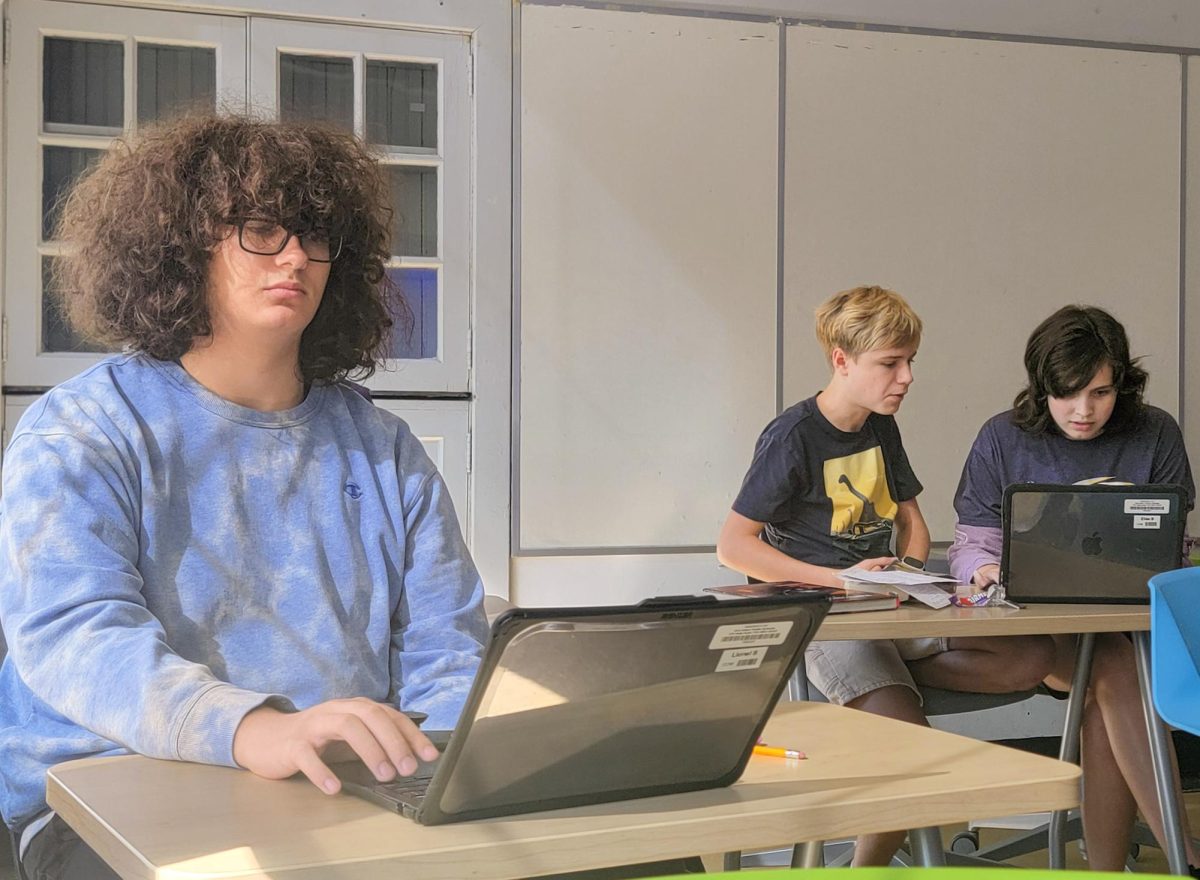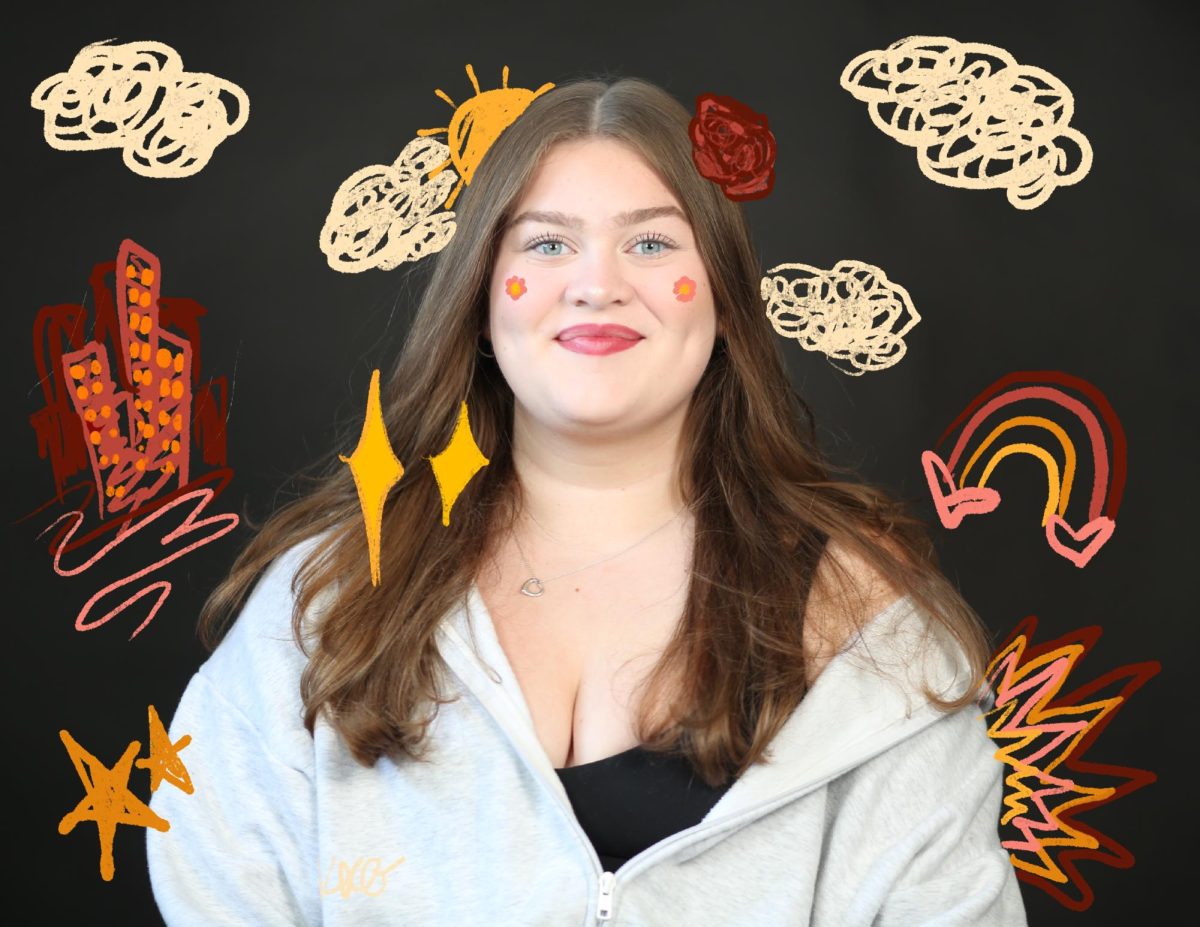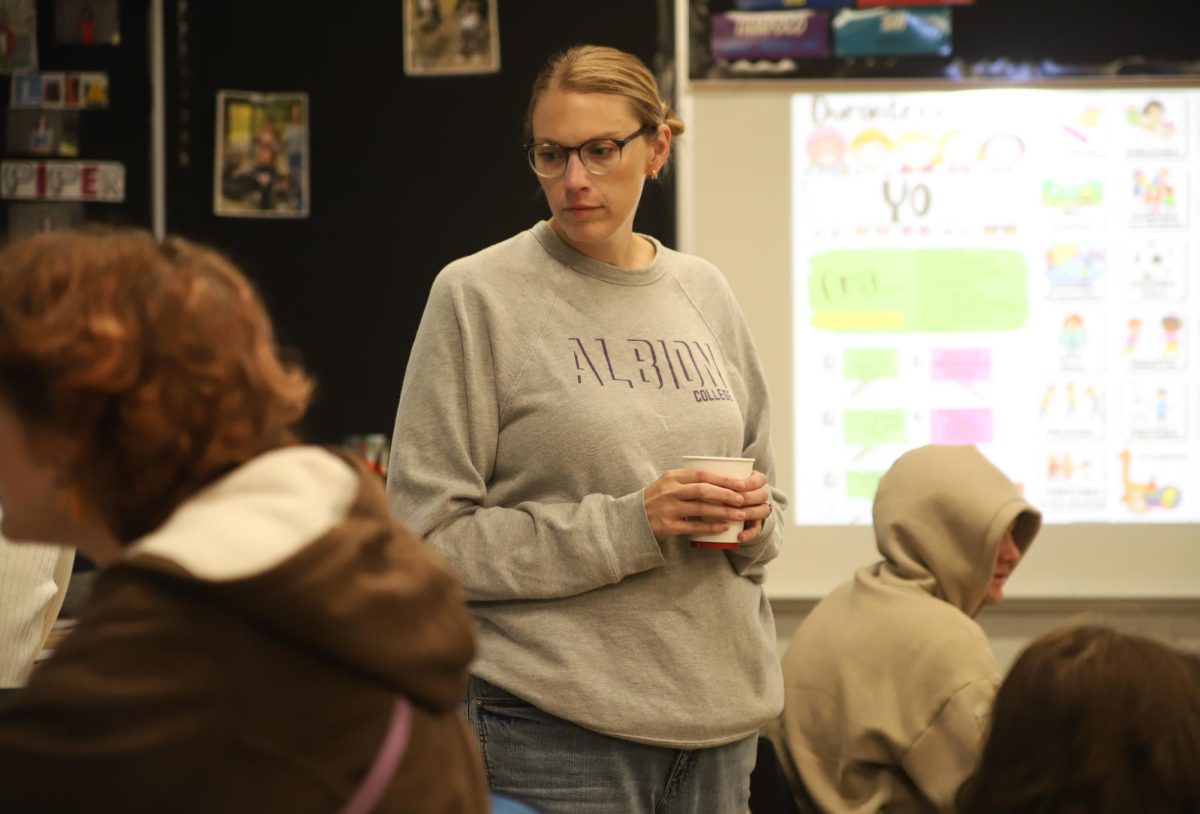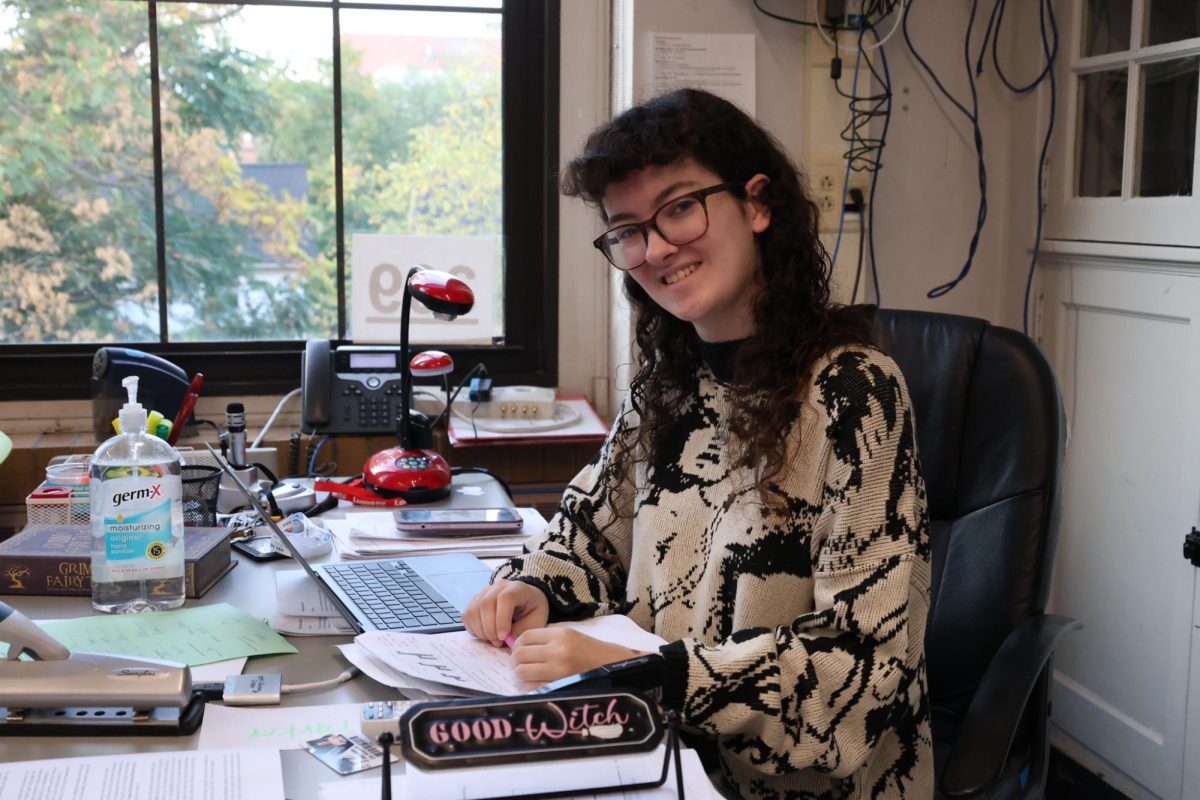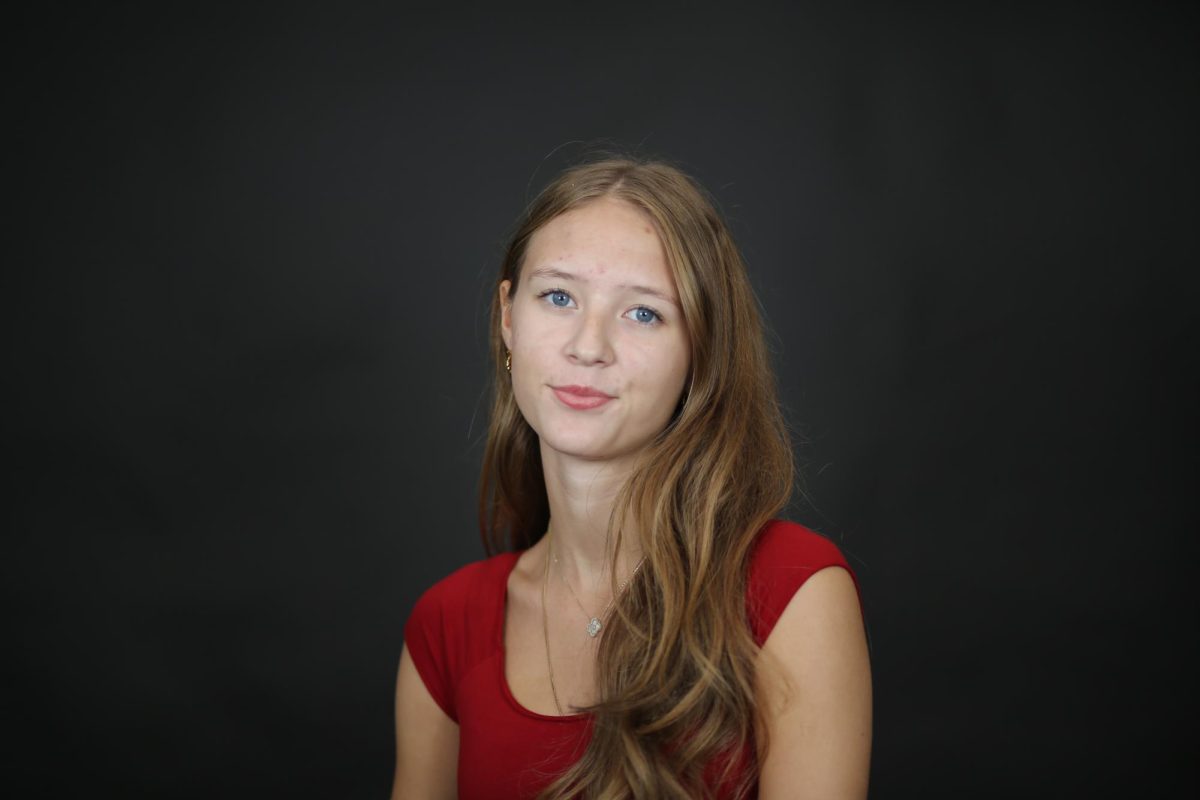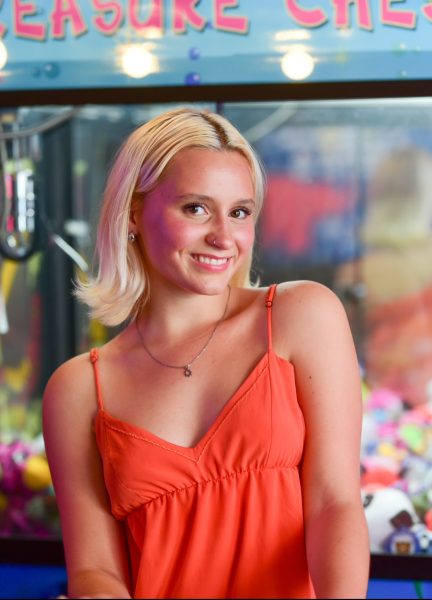The Shakespeare play “A Midsummer Night’s Dream” begins with two people longing to be with each other. The characters Hermia and Lysander plead for Hermia’s father to accept them as a couple. Her father denies their request and demands that she marry another man. This leads the two lovers to run away into the woods. These woods will soon act as an escape from reality, and in Emily Wilson-Tobin’s eyes, a safe haven for those not accepted by society.
This past summer, when Wilson-Tobin, director of Community Ensemble Theater [CET], listened to “Pink Pony Club” by Chappell Roan, she was inspired by Roan’s story. Chappell Roan was raised by a conservative community, then went off into a wild queer drag land and finally experienced a place where she could truly feel like she could be whoever she wanted to be.
“That translated immediately for me into that experience [in Midsummer] of going out into the forest and craziness and expression,” Wilson-Tobin said. “The idea of gender fluidity and queerness is not a new one for Midsummer, but it felt very fresh to me.”
She first thought about these ideas a few years into her career as an acting teacher and theater director for middle and high school. It wasn’t until Wilson-Tobin had conversations and experiences with some students who opened up to her about not necessarily existing on the binary, that she started to think about it more carefully.
It’s not unusual for middle and high school theater directors to do what traditionally would be called “cross-gender casting,” often because many of the people who audition on that level identify as female.
“Cross-gender casting” has been in existence far before high school theater programs were. Since ancient Greek theater, women were banished from performing on the stage. Wilson-Tobin looks carefully at the history of gendered casting and the effect it has on performance and actors’ identity.
“If we’re talking about Shakespeare, women weren’t allowed to be on stage, and so men were dressing as them,” Wilson-Tobin said. “It became a joke at some point, for men to dress as women.”
In Shakespeare’s time it could be assumed that all the roles were being played by male actors. In “A Midsummer Night’s Dream” there’s humor about a young man being forced to play a female role, which is something that Wilson-Tobin hopes to explore through CET’s production.
Throughout Wilson-Tobin’s life as an actor she has always been interested in playing male roles such as Hamlet or Richard the III because of the power that those characters held. When she did get cast as male characters it was easy for her to fall into stereotypes of masculinity.
“I felt like I had to be sort of Uber masculine, but it also felt really good to be less sexualized on stage,” Wilson-Tobin said. “Often when you end up playing those roles, if you are a female presenting person, you’re actually embodying a lot of the misogyny that is normally directed against you.”
Last year Wilson-Tobin acted as an advisor for a Gender in Performance CR with student Eli Braunschneider, which opened her mind to many ideas regarding casting and conversations surrounding identity in theater. The themes the two reflected on heavily centered around the gender of the actors vs the gender of the character they are portraying.
“We looked at things more carefully, and found that it’s actually more important for roles to be written for people who are either female presenting or non binary, rather than trying to stuff people into these masculine roles that they don’t necessarily naturally fit into,” Wilson-Tobin said. “Why is that where all the power should be?”
When thinking about casting for “A Midsummer Night’s Dream” Wilson-Tobin wanted to be purposeful about thinking outside the binary and representing people on stage in a way that made them feel honored in their identity.
“I pushed myself to approach casting without fixed ideas about how I might explore flexibility and fluidity in gender identity/expression,” Wilson-Tobin said. “This isn’t atypical for my casting process – I always try to come to it with an open mind – but I really wanted to see who showed up and how their identities could shape the story the casting would tell. As a result, how gender and gender expression would be part of our story was a big unknown.”
Now that the cast is set, and Wilson-Tobin knows more, she wants to continue to approach the show with discovery in mind.
“If you are open to discovery rather than a fixed idea of how everything should work, you are a powerful artist,” Wilson-Tobin explained.
She casted the role of Lysander (the man at the beginning who’s in love with the girl whose father doesn’t approve) as someone who doesn’t necessarily fit into the binary.
“That decision was purposeful,” Wilson-Tobin said. “There’s no question that the actor is going to be wonderful in that role and that the person wouldn’t have gotten that part if they couldn’t hold it. But there are some interesting things to explore that add layers to that.”
Wilson-Tobin hopes to open up this conversation further than just the audition room and casting decisions. She wants to show the audience that the cast and crew have had these conversations and provoke reflective thinking. How the audience will respond to the show is unknown, but Wison-Tobin is confident that this show will leave the audience with more to think about.



